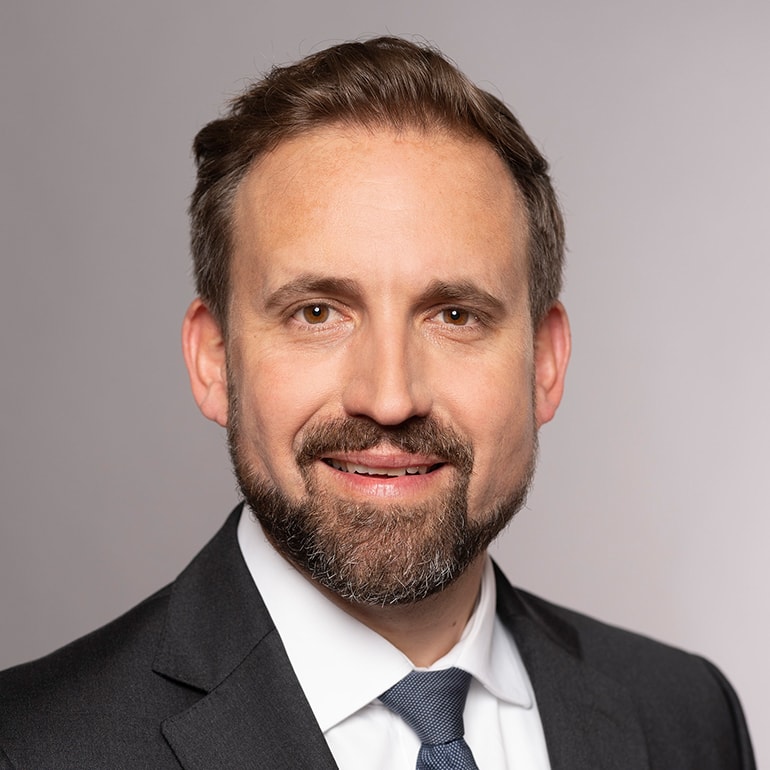10.06.2020
On 9th of June 2020, the Federal Cartel Office (Bundeskartellamt) released one of its rare so-called chairman`s letters (Vorsitzendenschreiben) to the German automotive association (VDA) due to the need for a higher degree of short-term cooperation in the automotive sector: The Bundeskartellamt announced that it will not address certain forms of corona-based cooperation for a limited period of time in the automotive industry under certain conditions, even between competitors, i.e. it will not initiate investigations or proceedings against the cooperating companies. The actual permission concerns a certain (higher) degree of coordination and exchange of information on the one hand while restarting the production and on the other hand regarding the restructuring of companies. However, the letter should only be seen as an informal guideline. Yet, it actually protects companies from the initiation of fine proceedings during the period which is mentioned in the letter when operating within this framework "in good faith". This does not legitimate, however, cooperation and exchange of information without limits. Therefore, companies may only implement the described measures within the framework set by the Bundeskartellamt for each individual case (e.g. the establishment of Clean Teams for the exchange of information).
During the Corona crisis, all OEMs (Original Equipment Manufacturers) in the automotive industry shut down large parts of their production in Germany, which also caused a stagnation for hundreds of automotive suppliers. The forthcoming or initiated restart of production creates many difficulties for the automotive industry, as the production is focused on "just-in-time" delivery of thousands of different internationally produced parts. It requires clever logistics and the simultaneous availability of all parts necessary for production. At the same time, there is a risk that the loss of revenue during the lockdown will lead (or has already led) to liquidity problems for a large number of companies in the short or medium term, which will not be solved either by government support measures or by concessions from just one single customer. If solutions are not found in the immediate future involving all stakeholders (all banks, all - competing - customers (the OEMs or downstream suppliers) and owners), the result could be a complete breakdown of single suppliers and thus supply constraints. This can also temporarily shut down entire production facilities, leading to further losses running into billions. If the supplier then exits the market, there can be further negative effects which can lead to a deterioration of the competitive structure not only during but also after the Corona crisis.
For those reasons, there is an increasing need for communication and cooperation in the automotive sector, not only regarding the relationship between suppliers and manufacturers, but also for competitors involved in these processes. The VDA has discussed the situation with the Bundeskartellamt, which has currently acknowledged a need for more, uncomplicated cooperation regarding the restart of production (e.g. regulations concerning capacity constraints and closing times) as well as corona-related restructuring measures. However, the statement on corona restructuring measures is limited to proceedings in which the first stakeholder meeting was convened by 31st of December 2020 and the restructuring measures have to be completed in 2021. Only companies whose head office is in Germany or foreign companies whose subsidiaries or permanent establishments are located in Germany are covered.
In addition to that, the Bundeskartellamt stated that it does not investigate forms of cooperation which apply the concept presented by the VDA and the conditions of the chairman's letter. Actually, the letter indicates that companies cooperating within this framework are not completely protected from the Bundeskartellamt initiating proceedings in which it could be examined whether a cooperation (and not only on paper) remains within this framework. However, as long as companies act in "good faith" within this framework, there is no general risk of the imposition of a fine. In the end, the Bundeskartellamt provides unbureaucratic support to the industry which is confronted with an unforeseeable situation. Due to the unclear legal situation under competition law in German restructuring proceedings, OEMs have so far been particularly reluctant to enter into cooperation agreements.
However, the letter only binds the Bundeskartellamt itself and no other competition authorities (or the German courts or those in foreign jurisdictions). Certainly, the contents must have been discussed with the EU Commission; one may well assume that the Bundeskartellamt would not have published the letter (in this form) if the EU Commission had expressed serious doubts about it. However, the concept may not be new to some other jurisdictions (regardless of the industry) (e.g. Chapter 11 proceedings in the USA). Nevertheless, because of the international dimension of the issue, it seems possible that other European antitrust authorities could follow by publishing similar statements (or their possibly divergent position). In any case, the Bundeskartellamt has set a new benchmark.
Although the Bundeskartellamt is probably cautious in initiating proceedings, it must be expected - particularly because the Bundeskartellamt has taken a clear position for the automotive industry in the EU - that it will closely observe the practice and intervene when these framework conditions are (obviously) not fulfilled. Thus, the Bundeskartellamt points out that all companies participating in the new framework are still obliged to abide by competition law. This corresponds to the clear statements made by the competition authorities that no one should take advantage of the crisis to cartelise (see here). In cases of doubt, companies will have to demonstrate that (i) they have not exceeded the level of cooperation required and (ii) the conditions set out by the Bundeskartellamt have been and will be complied by an ongoing basis.
In particular, these conditions include that companies must be free to decide when and how they restart their production. For the so-called "corona restructuring procedure", the following must be observed, among other things (not conclusive):
The VDA will coordinate further steps with the Bundeskartellamt, particularly publishing a best practice guide for cooperation on restarting production. Both the chairman's letter and the facts presented to the Bundeskartellamt can be downloaded from the VDA website here.
In the context of M&A transactions, potential investors will have to bear in mind that the purchase of a supplier facing insolvency is likely to be more complex and the specific legal framework will have to be taken into account, especially with regard to stakeholder involvement.
Not only the automotive sector will closely observe whether the initiative will bring the desired economic opportunities to overcome the crisis. In this respect, it is foreseeable that other industries will address the competition authorities with similar concerns. It has to be seen whether the authorities will be open to their pleas similarly. As mentioned above, the Bundeskartellamt emphasises that the measures must comply with antitrust law provisions and that its assessment is limited in time. This approach is therefore obviously not intended to become a generally accepted "new normality" regardless of the Corona crisis and the industry. It can therefore be assumed that the authority and also the European Commission will monitor the behaviour of the industry and, if necessary, raise concerns in individual cases, particularly, if there are signs of effects on the internal European Market - or other effects that the authorities believe go beyond the scope of permissible cooperation. Despite the extended regulatory framework, companies are therefore urgently advised to constantly analyse their behaviour and its concrete effects with regard to its compliance with antitrust law.

Dr Sebastian Felix Janka, LL.M. (Stellenbosch)
Partner
Munich
sebastian.janka@luther-lawfirm.com
+49 89 23714 10915

Anne Caroline Wegner, LL.M. (European University Institute)
Partner
Dusseldorf
anne.wegner@luther-lawfirm.com
+49 211 5660 18742

Samira Altdorf, LL.M. (Brussels School of Competition)
Senior Associate
Dusseldorf
samira.altdorf@luther-lawfirm.com
+49 211 5660 11176